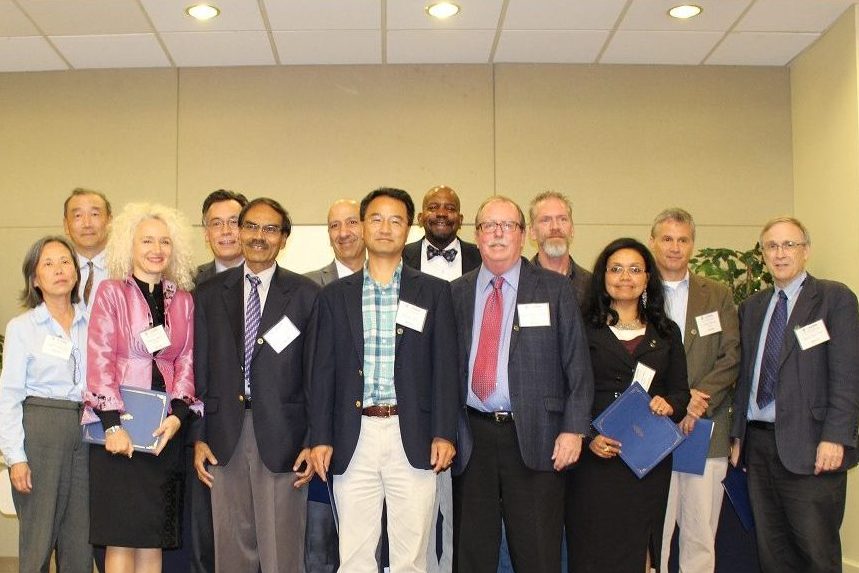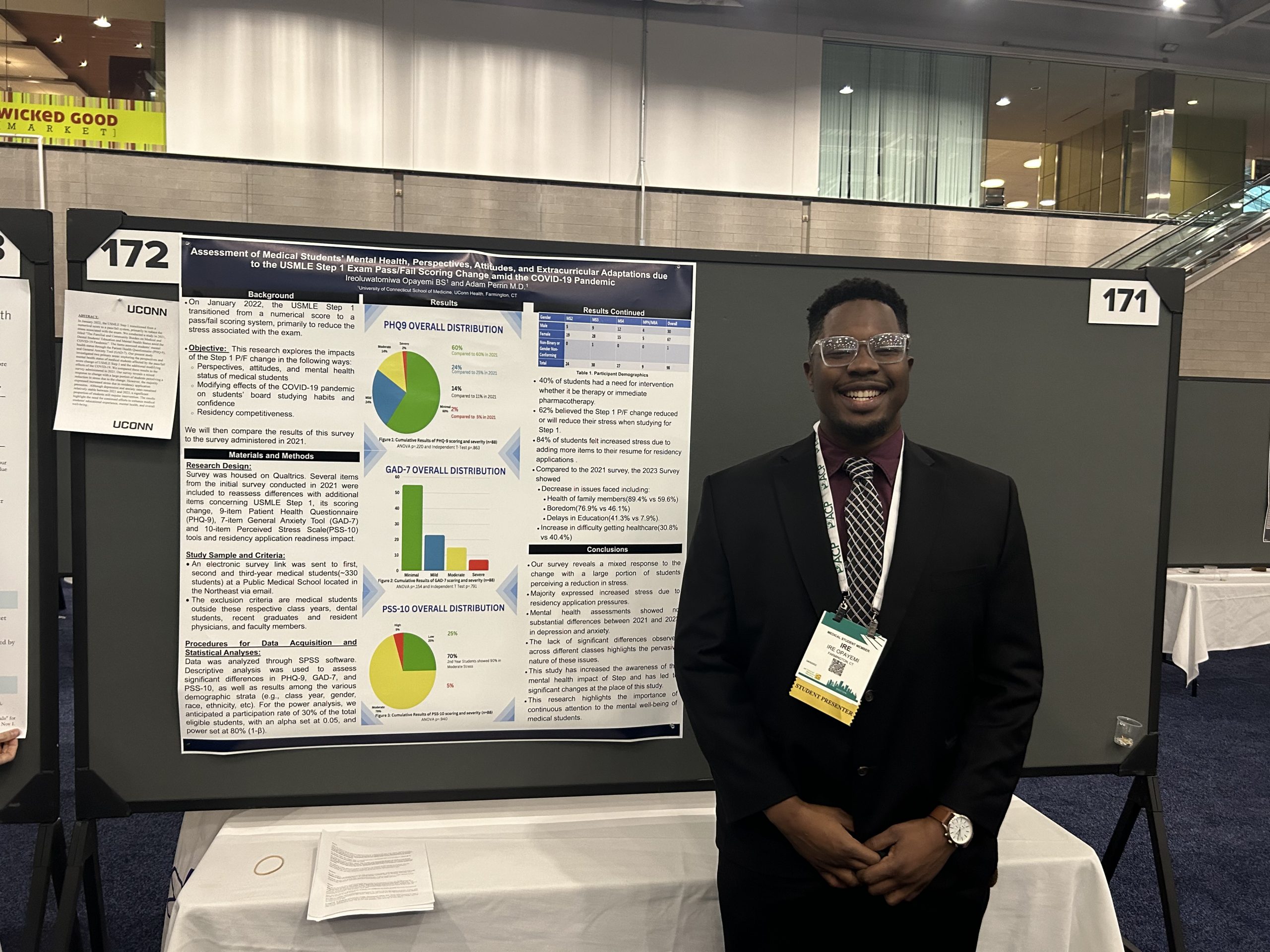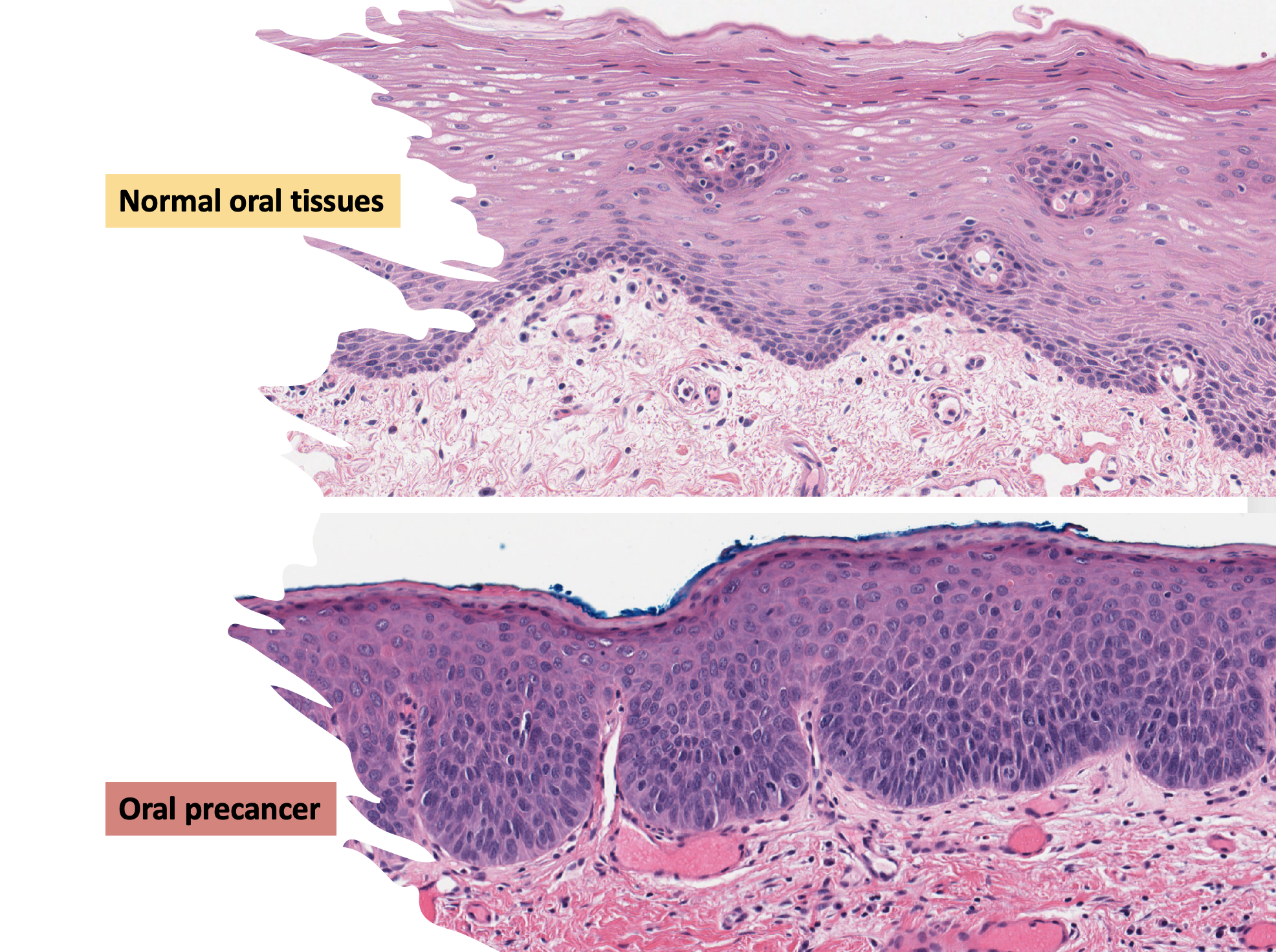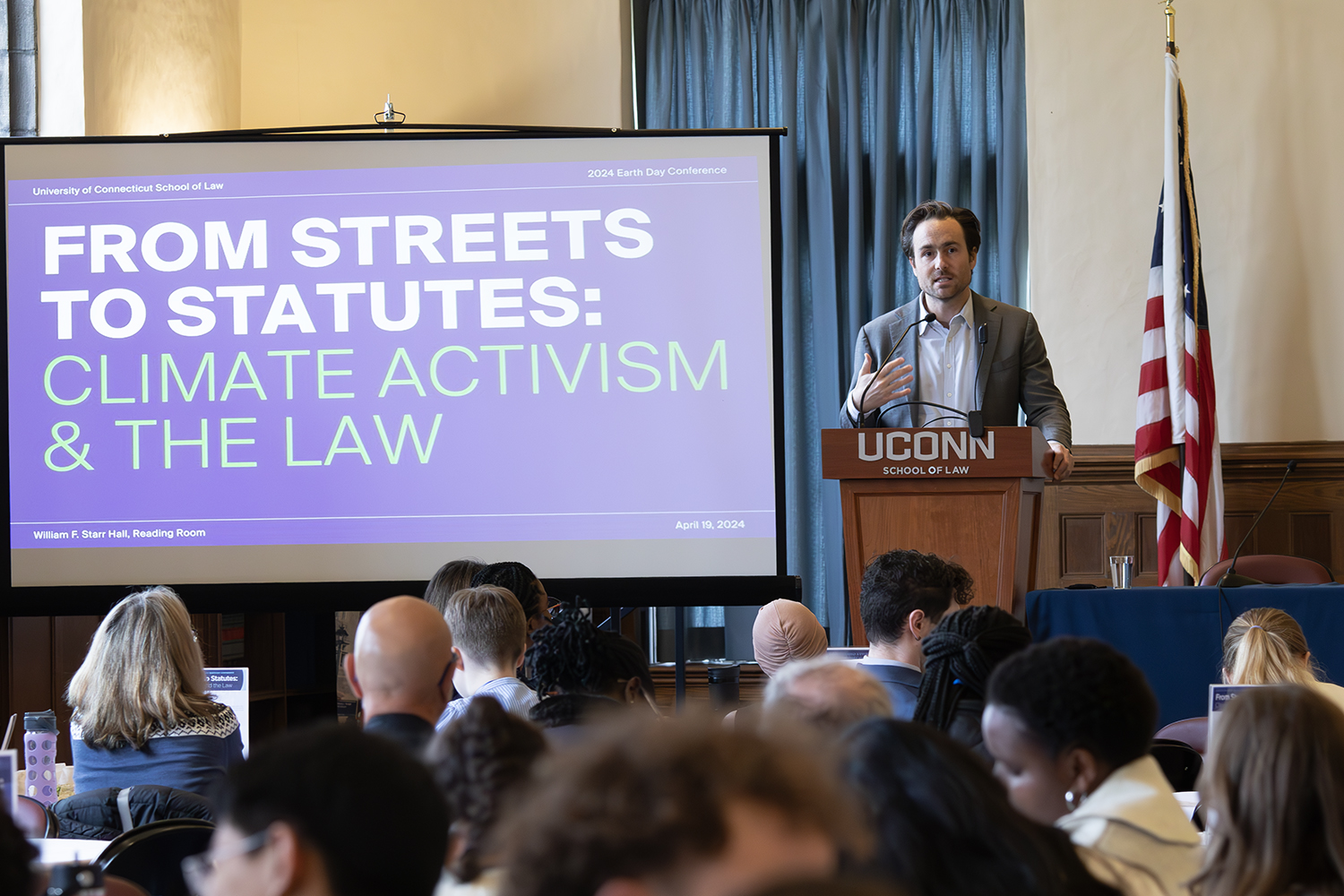The University of Connecticut hosted the inaugural gathering for Connecticut’s first chapter of the National Academy of Inventors (NAI) at the Lyceum in Hartford on Sept. 29.
The UConn NAI chapter was established as a result of the efforts and prodigious invention history of three distinguished researchers at UConn who are NAI Fellows. To receive this distinction from NAI, a researcher must be named inventor on patent(s) issued by the United States Patent and Trademark Office (USPTO) and must be affiliated with a university, non-profit research institute, or other academic entity.
Dr. Cato T. Laurencin, president of the UConn Chapter of the National Academy of Inventors became the first UConn NAI Fellow in 2013. Laurencin is well known for his pioneering work in the field of regenerative engineering and is an elected member of both the National Academy of Engineering and the National Academy of Medicine, and recipient of the National Medal of Technology and Innovation and the Connecticut Medal of Technology. In 2015, Dr. Pramod K. Srivastava, who is recognized globally for his groundbreaking discoveries in cancer immunotherapy, was named an NAI Fellow. Dr. Lakshmi Nair was inducted in 2016. Her work in regenerative biomaterials to enhance tissue repair and regeneration has resulted in many novel and valuable discoveries.
“The University of Connecticut is the state’s ‘Public GE’. It is the state’s ‘Public United Technologies,’” Laurencin said. “It is a driver of innovation while at the same time it’s an economic business engine in its own right. Moreover, in training and graduating extraordinary students, rooted in innovation, it provides the life’s blood for business and technology for our state. It is a formidable state asset and treasure.”
The University of Connecticut is the state’s ‘Public GE’. It is the state’s ‘Public United Technologies.’ It is a driver of innovation, while at the same time it’s an economic business engine in its own right.
UConn faculty generate an average of 80 invention disclosures a year, and UConn has been issued 559 total U.S. patents and 810 total foreign patents since tracking began. An average of twelve agreements aimed at commercializing UConn technologies are executed annually.
According to Dr. Paul R. Sanberg, founder and president of NAI, the Academy was formed in 2010 to recognize and encourage academic inventors, enhance the visibility of academic technology and innovation, encourage the disclosure of intellectual property, educate and mentor innovative students, and translate the inventions of its members to benefit society.
“I am pleased to see UConn strengthen its role with NAI,” Sanberg said. “As demonstrated by existing UConn Fellows, the University continues to demonstrate a commitment to innovation and supporting the many leading researchers at UConn and UConn Health who are working to find solutions for some of our greatest national and global challenges.”
NAI has 214 member institutions, 15 international affiliates, and more than 4,000 individual academic inventor members. The total number of NAI Fellows is 757. There are 42 chapters in all. An NAI chapter can include faculty, staff, students, alumni, and affiliates.
Dr. Radenka Maric, UConn’s vice president for research, is UConn’s member representative to NAI. An expert in materials science and the CT Clean Energy Fund Professor of Sustainable Energy, Maric anticipates that the new UConn chapter will be a vehicle for the University to recognize and honor researchers who translate their findings into inventions that may benefit patients, industry, and society.
“UConn’s NAI chapter provides a great opportunity to bolster the University’s strong history of innovation by facilitating forums for established inventors to share their knowledge and experience with aspiring student and faculty inventors,” Maric said.
Collectively, the Fellows hold more than 26,500 issued U.S. patents, which have generated over 9,400 licensed technologies and companies, and created more than 1.3 million jobs. In addition, over $137 billion in revenue has been generated based on NAI Fellow discoveries.
“NAI has played a vital role in ensuring the culture in Academia of valuing patents and commercialization,” said Nair who organized the NAI event. “We are so pleased to welcome 24 members to the UConn chapter.”



